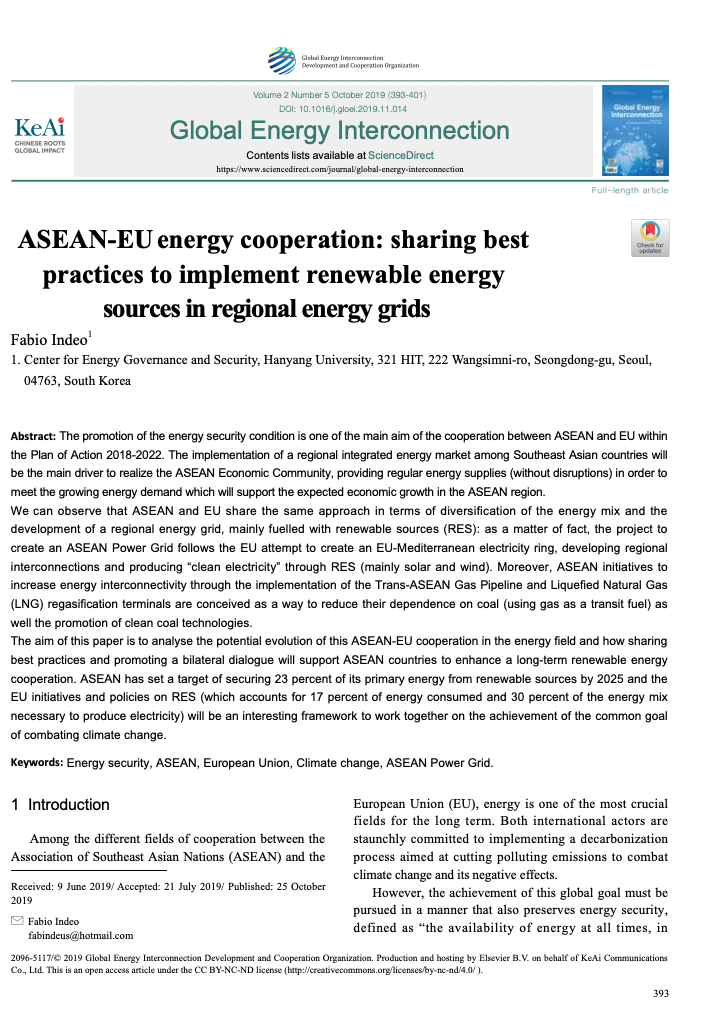
Keyword(s)
Author(s)
Fabio Indeo
Country(ies)
Publisher
Published Date
Access
DOI
Center for Energy Governance and Security, Hanyang University, 321 HIT, 222 Wangsimni-ro, Seongdong-gu, Seoul, 04763, South Korea
The promotion of the energy security condition is one of the main aim of the cooperation between ASEAN and EU within the Plan of Action 2018-2022. The implementation of a regional integrated energy market among Southeast Asian countries will be the main driver to realize the ASEAN Economic Community, providing regular energy supplies (without disruptions) in order to meet the growing energy demand which will support the expected economic growth in the ASEAN region.
We can observe that ASEAN and EU share the same approach in terms of diversification of the energy mix and the development of a regional energy grid, mainly fuelled with renewable sources (RES): as a matter of fact, the project to create an ASEAN Power Grid follows the EU attempt to create an EU-Mediterranean electricity ring, developing regional interconnections and producing “clean electricity” through RES (mainly solar and wind). Moreover, ASEAN initiatives to increase energy interconnectivity through the implementation of the Trans-ASEAN Gas Pipeline and Liquefied Natural Gas (LNG) regasification terminals are conceived as a way to reduce their dependence on coal (using gas as a transit fuel) as well the promotion of clean coal technologies.
The aim of this paper is to analyse the potential evolution of this ASEAN-EU cooperation in the energy field and how sharing best practices and promoting a bilateral dialogue will support ASEAN countries to enhance a long-term renewable energy cooperation. ASEAN has set a target of securing 23 percent of its primary energy from renewable sources by 2025 and the EU initiatives and policies on RES (which accounts for 17 percent of energy consumed and 30 percent of the energy mix necessary to produce electricity) will be an interesting framework to work together on the achievement of the common goal of combating climate change.
Cite:
Fabio Indeo, ASEAN-EU energy cooperation: sharing best practices to implement renewable energy sources in regional energy grids, Global Energy Interconnection, Volume 2, Issue 5, 2019, Pages 393-401, ISSN 2096-5117, https://doi.org/10.1016/j.gloei.2019.11.014.